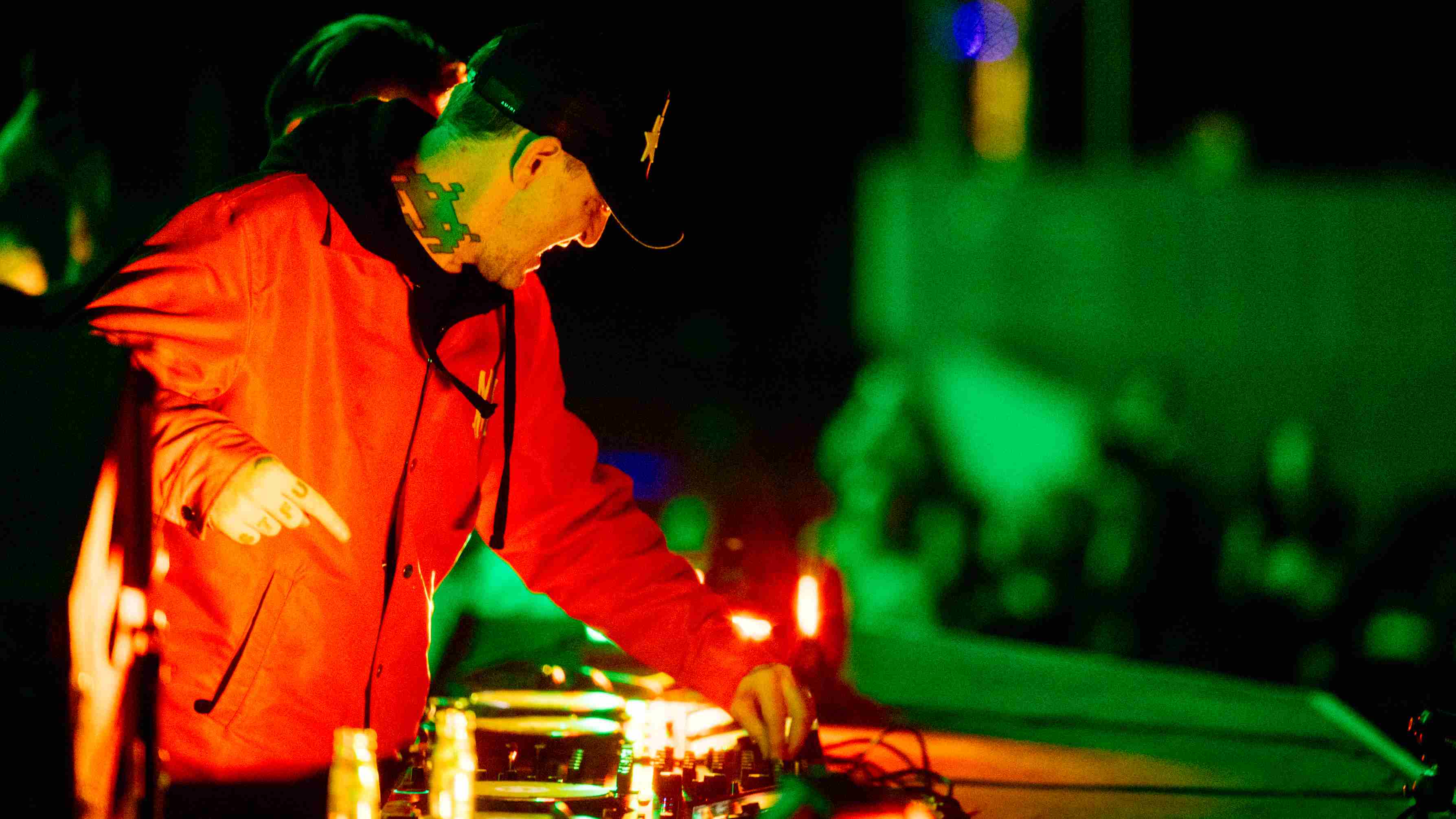How to be a successful session drummer
Ian Thomas tells us how he got to be one of the UK's most in-demand sessioneers
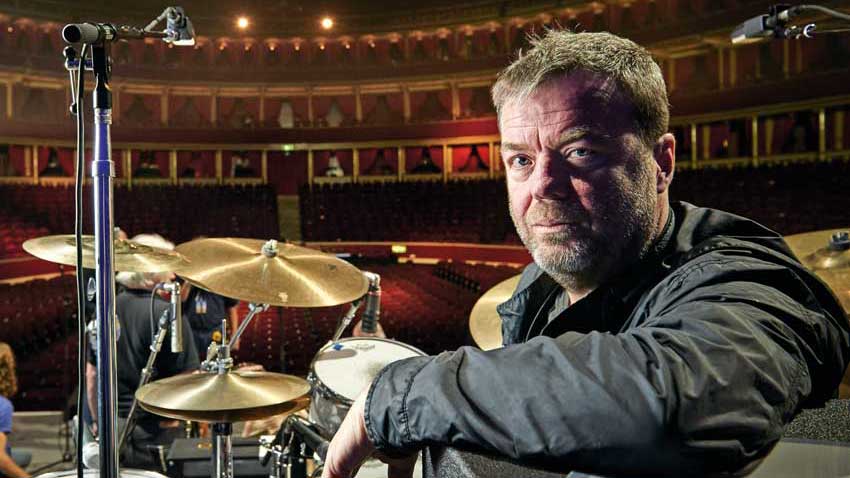
Ian Thomas
Arriving in London from his native Cardiff in 1984, Ian was known as a superb jazz and big band player. But he could also rock and his big breakthrough was on George Michael’s 25-million selling Faith (1987).
While always keeping a foot in his beloved jazz world he has appeared with Tom Jones, Eric Clapton, Stevie Winwood, BB King, Rufus Wainwright and umpteen others, including Michael Jackson, before landing his most recent gig with Mark Knopfler. Along the way he’s also nailed any number of pop sessions with the likes of Westlife, All Saints and Leona Lewis.
As one of the UK’s most versatile, adaptable and popular drummers today, Ian goes from house band regular at Ronnie Scott’s jazz club to major film sessions at Abbey Road to the O2 and beyond with Mark Knopfler.
He’s also done a ton of film work, including Twilight, World War Z, Penguins Of Madagascar, The Croods, Kung Fu Panda, In Bruges, Billy Elliot and The Muppets Movie. To shape this sort of exceptional career Ian has obviously impressed a lot of people. Here Ian shares his wisdom and the benefit of his substantial experience.
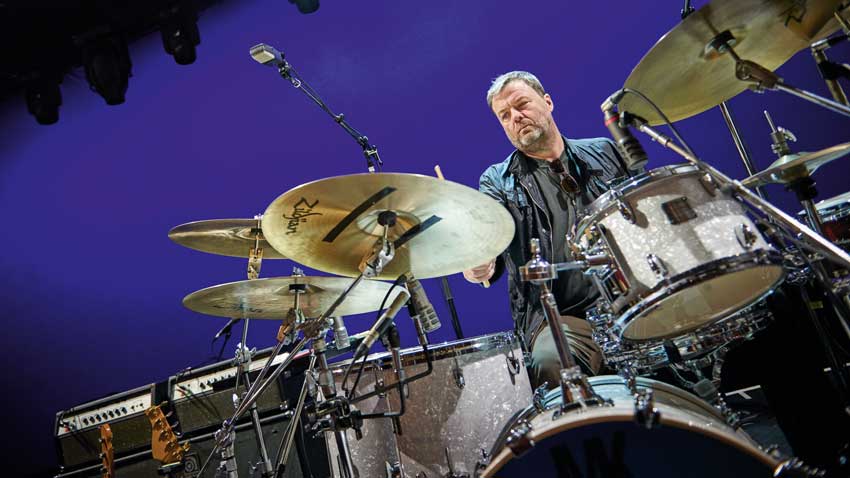
Garbage In, Garbage Out
“Take a bad kit to the studio and it will sound bad whatever anyone does to it. So make sure your instrument is up to scratch. The bass pedal and hi-hat don’t squeak, no rattles, new heads if necessary. You can’t magic an incredible drum sound out of a crap sounding drumset.”
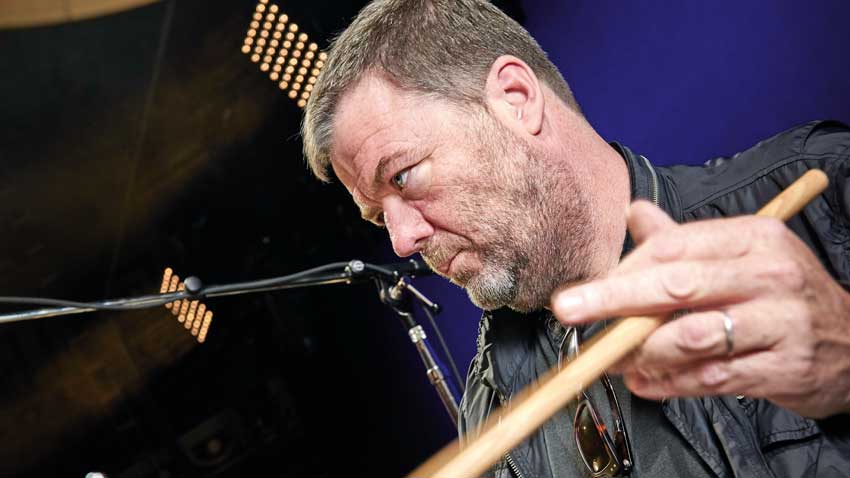
Be On Time and find out what you need
“Sounds simple, but if you can’t get that right you won’t be asked again. When I first did sessions I was almost turning up a week before! But even now I will always be there an hour early, see the people I am working with and ask what are we doing today?
“If somebody, whoever they are, wants you to come play drums, the next question is, what is the music? What idiom, because it could be anything from Keith Moon to 1920s jazz. Find out what instruments you need to take to make the sound they are looking for.”
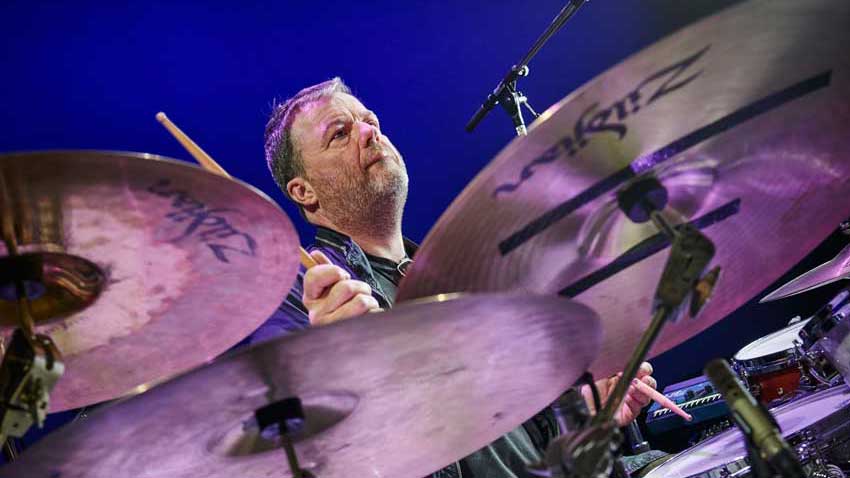
Be Versatile, and learn together
“Why cut off a whole load of work because you can’t be bothered to learn to read? If you want to do films or big band it is a prerequisite. What if I could play reggae? Yeah, maybe that would be a good idea. What if I could play jazz?
“Find a contemporary, someone you can trust, a bass player friend, hire a room and practise together. That is an absolutely brilliant thing to do. You can examine odd times, look at all sorts of different things together. You can experiment and screw up together.”
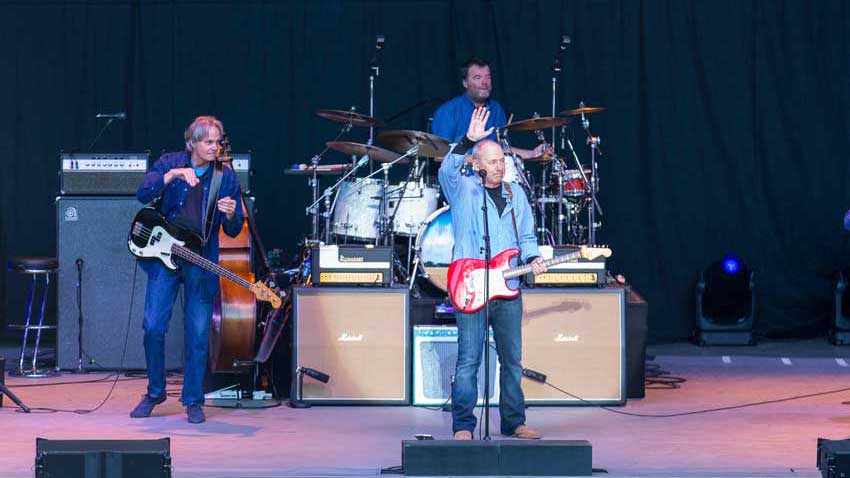
Play for the music
“Mark [Knopfler] gives me the room to try things and he will say if he does or doesn’t like it.But I have the wriggle space and he trusts me enough. And he also knows that if he doesn’t likeit I won’t be offended.
"On ‘River Town’ I played an amazing old drum kit you’d be interested in. Mark has a friend called Bobby Colomby, the original drummer from Blood, Sweat And Tears. One of the funniest men I have ever met. Mark remembered Bobby played a wine red ripple Rogers kit with BST and he phoned Bobby who said he’d given it to a dentist in Denver. He got it sent over to Mark as a gift. And on ‘River Town’ that is the kit I play. It’s 20", 12", 14" – really lovely.”
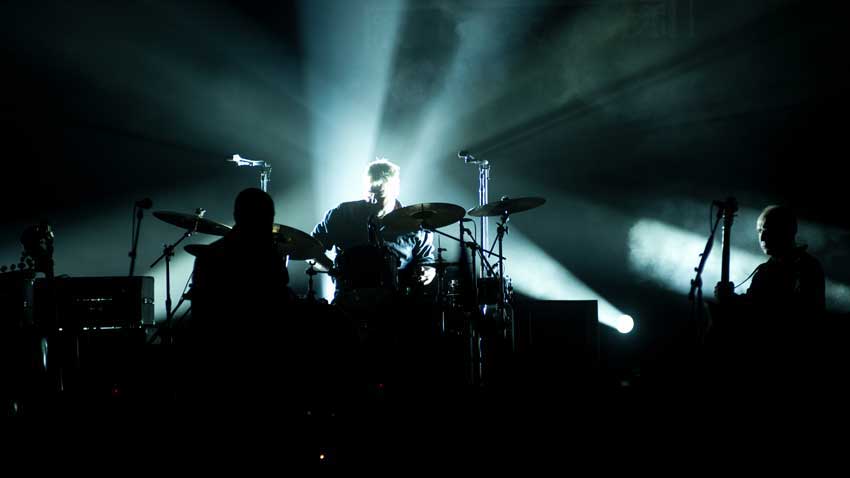
Approaching the live gig
“What I’m into now is trying to remember songs and sets, because I used to write everything down and then it would take ages to get rid of the cheat sheets. Reading is a skill that can be taught, but actually remembering song form is easily as big a skill for me. You learn the song in a more holistic way. You know the dynamic range rather than a two-dimensional piece of paper that you can’t let go of.”
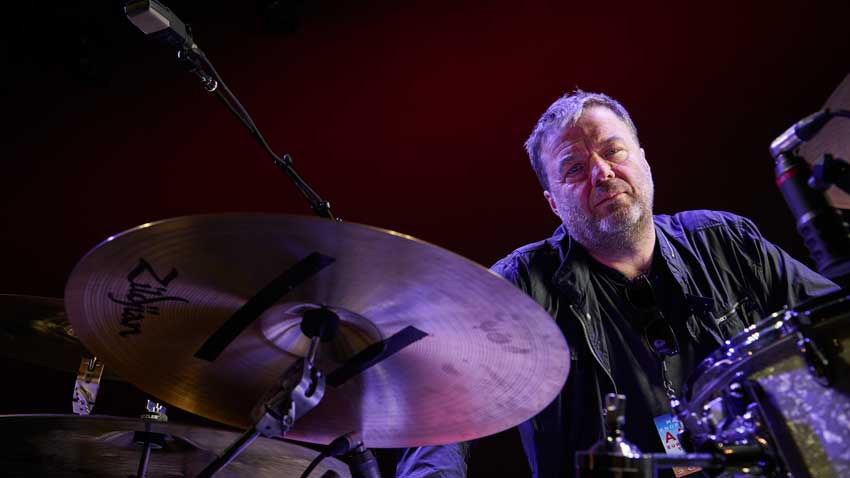
Learn to read, but have patience…
“I was reading from age 12, having lessons, but I’ve always been a bit dyslexic and reading took ages to sink in. It wasn’t till I was about 21 that the penny dropped. And all it was, was repetition, repetition, repetition. Then suddenly one day it was, okay. I get it. I struggled with it because I am naturally more of an ear player. Everyone says to me your reading is amazing and actually it has taken a long time to get it together. Now my base recognition of rhythms is very high because I have done a LOT of it.”
“When you are reading English and you see the word ‘the’ – you don’t go ‘T - H – E’ – you see the whole word. You don’t even read it, you just know what it is. And that is what you have to do with reading music, recognise groupings."
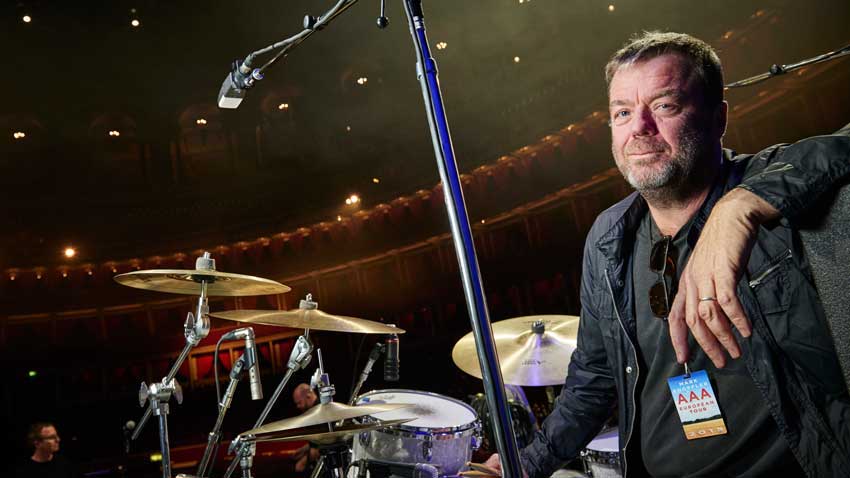
On film work…
“I did a session for the Twilight series of films and Carter Burwell was the writer, over from Hollywood. There were five of us in the percussion section at Abbey Road and it was the hardest thing I have ever seen written in my life! There were bars of 3/16, 5/8, and nowhere to hide! And it was all in unison!
“On Legend [about the Kray brothers], I had to improvise a drum solo to the fight scene, watching the screen. He had a skeleton part with clicks and some hits and I said, ‘What happens here?’ And he said that is when he kicks him in the b**locks, do something for that! It’s a challenge, improvising to actual picture is really rare, so I love that.”
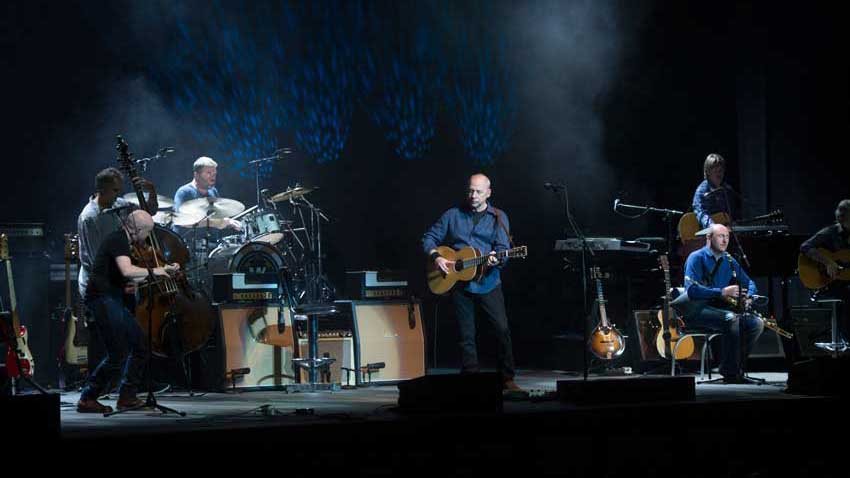
Breaking through
“Coming to London from Cardiff was a big step, I didn’t know anybody. I signed on the dole and said I would give it five years or do something else. I got myself a London phone number, because in those days there were no mobiles, went to all the jams, including NYJO [National Youth Jazz Orchestra].
“The way the George Michael gig came about was I went to the Edinburgh Jazz Festival with John Altman’s Big Band. I was at the bar with [bassist] Jeff Clyne, and John said what are you doing next Thursday? And actually I was on summer season with Cilla Black. I was just about to say that when Jeff dug me in the ribs and said, He’s not doing anything! So John said, ‘Be at Sarm West at 10am, George Michael session.’ That was a big moment for me.”
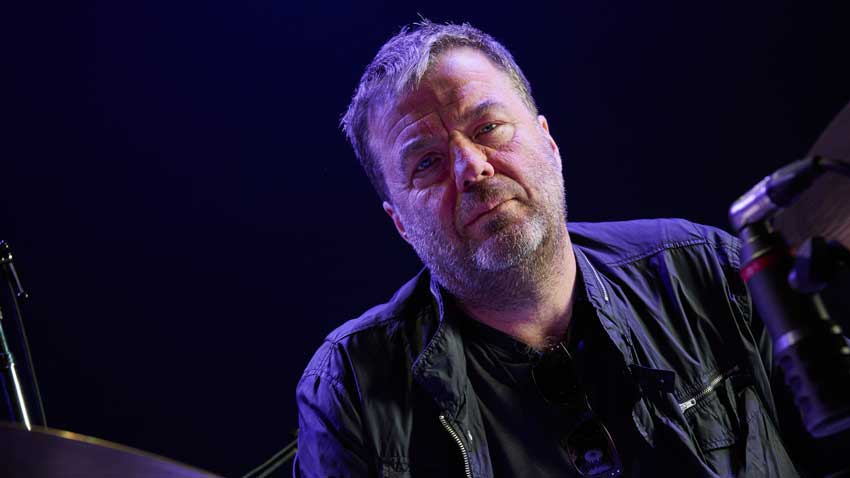
Bringing It Home
“I’ve been working on [my home studio] for the last four years. I’m overjoyed, the room sounds really great and it’s air-conditioned and soundproofed properly. I think it’s a must for someone like me. I’m really excited, I’m engineering, learning like crazy, but it’s something I love.
“What inspired me to do it was, number one, somewhere to practise and to teach and to rehearse with different bands and to record music I want to record. As an off-shoot I might get some remote sessions. Also, I was doing quite a few sessions where [clients] had only booked the studio for the live drums. Nowadays many want live drums again, and they can’t get it from a machine. So they hire a studio and a bunch of mics. I’m walking into studios hired just for me, but they have no idea how to mic a drum kit! And I’m thinking I can do a better job, why not come to my place? I have a great sound actually which I know really well.”
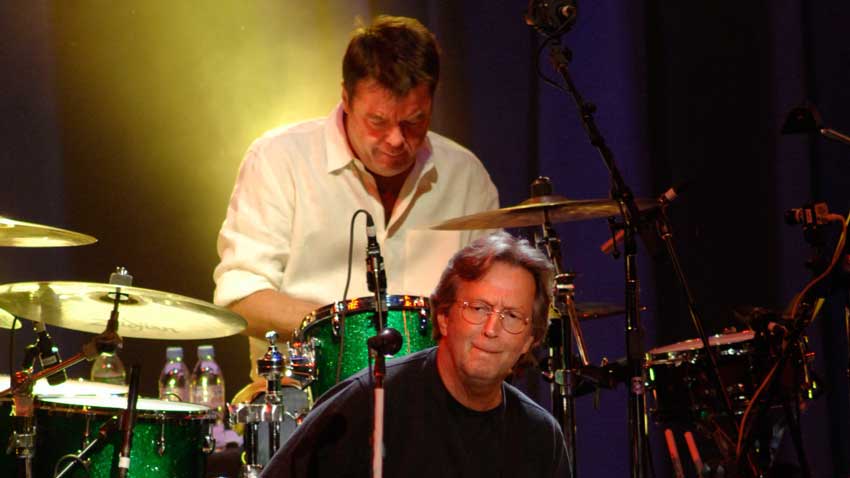
It's okay to be nervous…
“I am much better now, but I suffered badly from nerves throughout my career. In my experience there is an element of nerves in every good player because it’s part of caring about what you do. And the ones who are really good are the ones who have learned how to not lose their nervousness, but control it.
“When I first came to London no one knew me from Adam and then I started getting a few gigs and I would turn up at the 606 Club and half a dozen of London’s best drummers would be in the front row. Hell, I can’t cope with this! And I had a girlfriend, Caroline Dale, a fantastic cello player, who said to me, ‘Look, they would all rather be where you are. The only way anyone can stop you is by getting a gun out and shooting you and they are not going to do that so why worry about it. Calm down and do what you are doing.’
“The first time I worked with BB King was on his 80th birthday album in 2005. We all met
BB and he senses there are nerves in the room. He gathered us all around and said, ‘I have played on thousands of albums in my lifetime and I have never played perfectly on any of them. There are always mistakes. I doubt if I will play perfectly on this one either. So you know what I am gonna do? I am gonna play from here [the heart] and that is all I want you to do. Forget any fears, I just want to hear what you have to say. Don’t worry about making mistakes.’
“And that [album] is also when Eric Clapton set up right in front of me and was really ‘off’ to me. Apparently he told the producer just before he came into the studio, ‘I don’t know this drummer and if he’s no good I’m out of here.’ Fortunately I didn’t hear that! And that was the vibe I was getting. He was ‘challenging’ me and I thought, you are not gonna put me off. Unless he shoots me he is not gonna stop me from playing from my heart and soul. And that is how I got the Clapton gig, in that moment!”

Want more?
Read more from the world’s top drummers, interviewed exclusively every month in Rhythm magazine…
“I’m sorry I ruined your song!”: Mike Portnoy hears Taylor Swift's Shake It Off for the first time and plays along... with surprising results
“Nile's riff on Get Lucky is a classic example of a funk riff, where the second of each 16th-note duplet is slightly delayed”: Locking down the theory of groove
“I’m sorry I ruined your song!”: Mike Portnoy hears Taylor Swift's Shake It Off for the first time and plays along... with surprising results
“Nile's riff on Get Lucky is a classic example of a funk riff, where the second of each 16th-note duplet is slightly delayed”: Locking down the theory of groove









